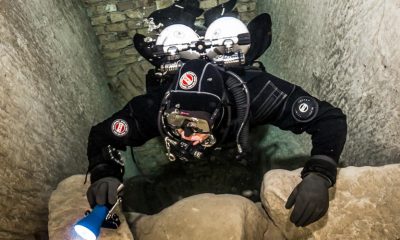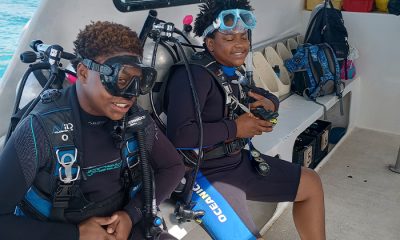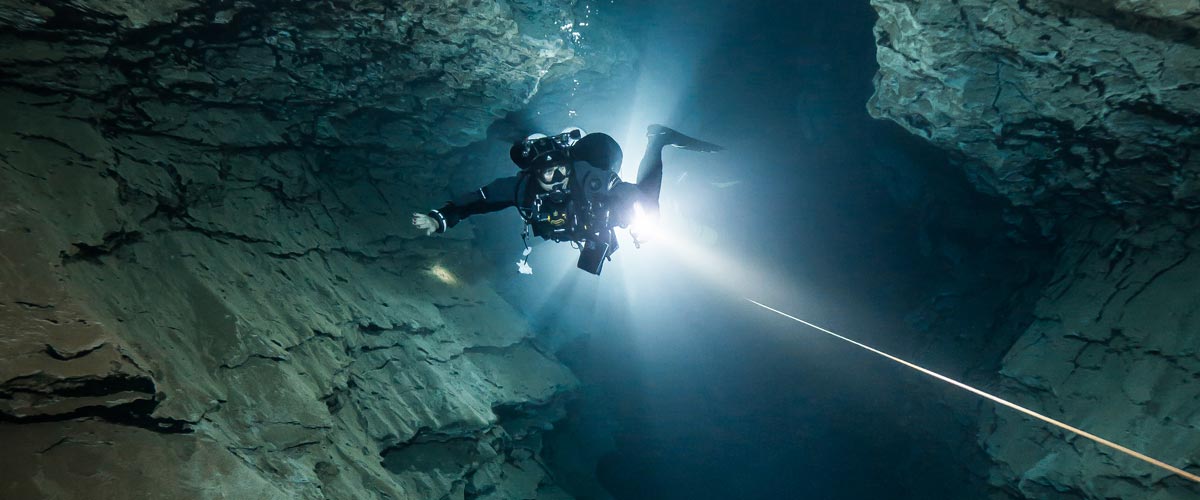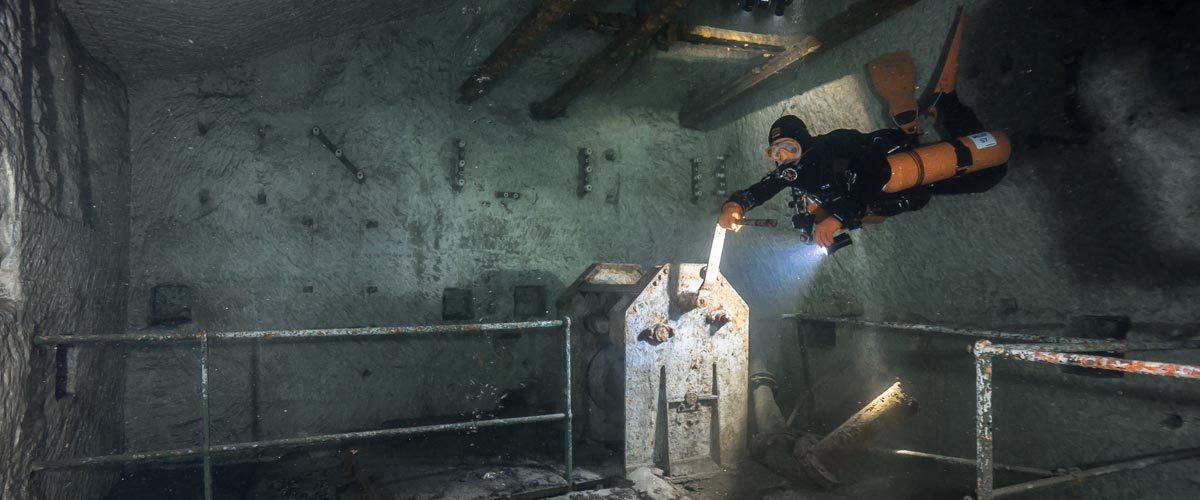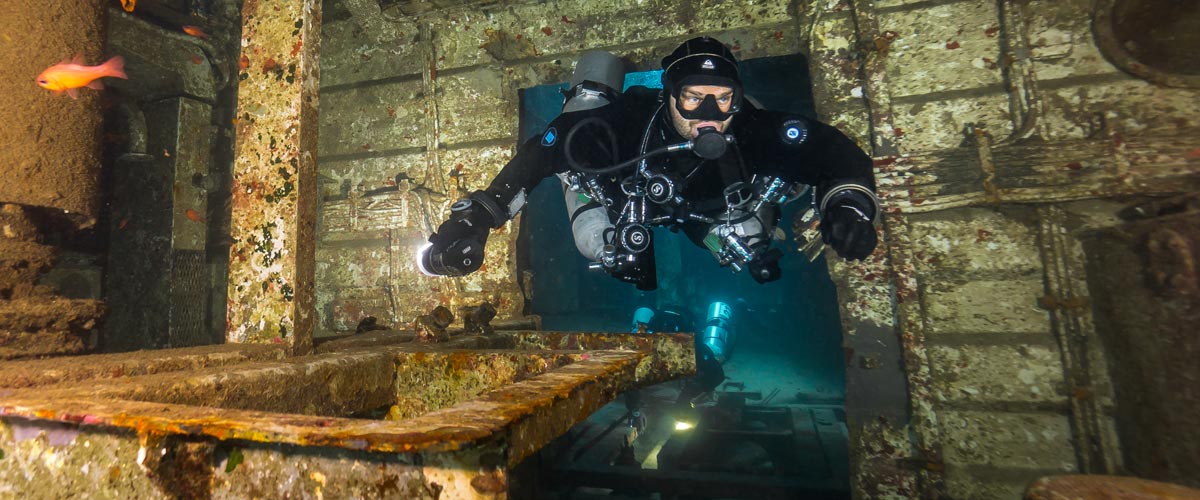Dive Training Blogs
Can we go diving yet?
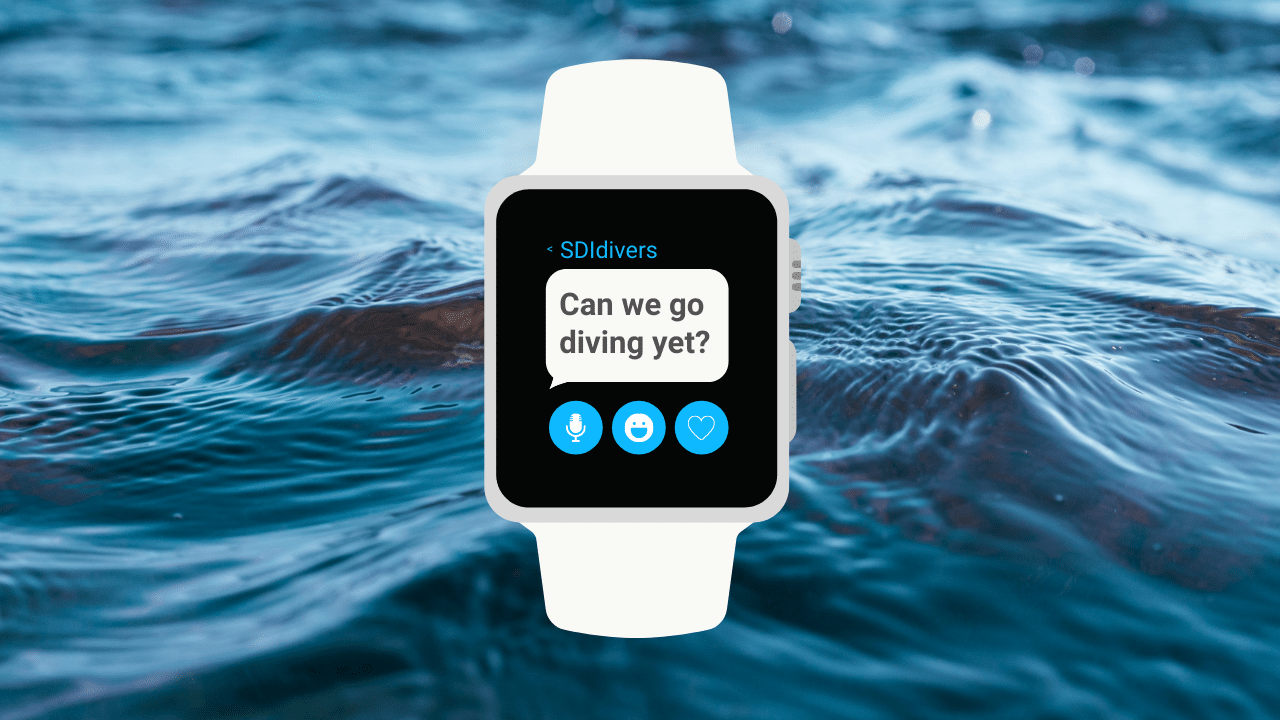
By Mark Powell
After an unprecedented year, it finally looks like we are getting into the final phase of the coronavirus pandemic. Vaccines are starting to be rolled out and cases are starting to fall. In a number of areas, it is possible to anticipate lockdown restrictions being lifted, and as a result, people are getting ready to get back in the water. For some people, it has been a year, or even longer, since they have been diving. In many cases, this may be the longest time out of the water they have ever had to endure. Before you jump back in, there are a number of things to think about in order to ensure you can get back to diving safely.
Are you dive fit? If you have been out of the water for any length of time, there are a number of things to check
The first is to have an honest look at your fitness levels. If you were used to diving regularly, you may have taken your diving fitness for granted. Many people have used this period of lockdown to work on their fitness through walking, running, or other forms of socially distanced exercise. However, if lockdown has resulted in you putting on some weight or caused a reduction in your activity levels, it might be worth thinking of a gentle fitness plan to get back in shape. The last thing you want is to injure yourself by putting on your dive gear for the first time in several months or get into trouble if you cannot swim as well against a current as you could before the enforced dry season. Start to slowly build up your stamina and strength levels so that you can comfortably resume diving.
A note if you’ve had COVID-19
If you are one of the millions of people who caught and then recovered from COVID-19, then you should ensure you are fit to dive. Your respiratory system can be affected by the coronavirus and it can have long term effects on your lungs and other systems that could impact on your ability to dive safely. The new UHMS 2020 Medical for screening divers undergoing training specifically covers COVID-19. If you have had COVID-19, then a doctor will need to confirm that you are fit to dive. It is likely that there will be a high demand for advice from diving doctors, so if you know you have had COVID-19, get in contact with your doctor as early as possible just in case an appointment may be necessary.
Mental Fitness
In addition to physical fitness, we also need to consider mental fitness. Start reviewing your training material to refresh your knowledge. You can review physical course manuals, but also remember that if you did eLearning you can always go back and review the course content online. You can also work through various “what if” scenarios to deal with various hypothetical situations, including normal dives as well as emergency situations. This can be done alone, but works well as a group exercise with your dive buddies.
There is plenty of evidence that diving and being near water is beneficial for good mental wellbeing. I know many divers look forward to getting back in the water in order to get back to their “happy place”. Equally, it is perfectly normal for some people to feel nervous or apprehensive about their return dive. Making sure you are properly prepared, both physically and mentally, as well as checking all of your equipment is in full working order can reduce these concerns and ensure you are in the right frame of mind.
Your equipment
If your equipment hasn’t been used for some time, then it is essential to take the time to ensure it is in working order. Cylinders may need to be tested or cleaned. Regulators will need to be serviced. Batteries will need to be charged or replaced and all of your other equipment will need to be checked. Make sure you allow plenty of time for this. There is likely to be a high level of demand for cylinder testing and regulator servicing in the next few months. If you wait until last minute, it is highly likely that your local dive shop won’t be able to get all of your equipment serviced. Even for equipment that doesn’t need to be serviced at your LDS, spend some time checking that it’s all working so that you have time to resolve any issues, rather than having to rush at the last minute or ever worse, lose a dive because your equipment isn’t working.
Skill levels fade if not used regularly and diving skills are no exception. Things that were slick and easy last year may feel awkward and clumsy now. Any diver, no matter what their level, should start their return to diving with a shallow shake down dive to ensure their kit is working and all of their skills are up to scratch. It’s a good idea to review all the skills that form part of your various diving qualifications and, starting from the basic qualification, make sure you can still perform each of the skills. Although a lot of things will come back quickly, it is always surprising to see how rusty divers are during that first dive after an extended time out of the water.
 To find out more about International Training, visit www.tdisdi.com.
To find out more about International Training, visit www.tdisdi.com.
Blogs
Intro to Tech: What is it about?
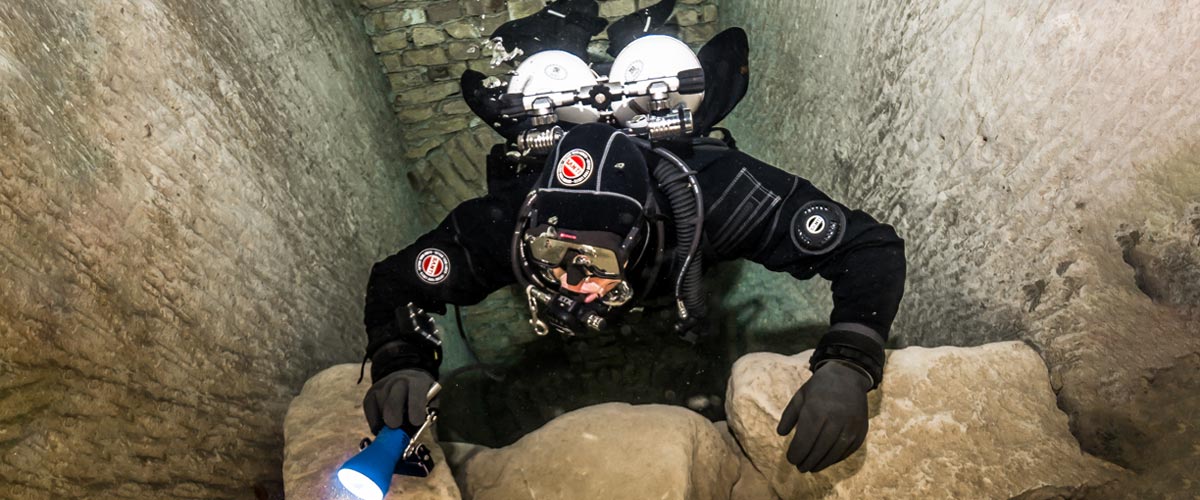
Article by José Pablo Mir
Pictures by Cezary Abramowski
The world of technical diving is exciting. It opens the door to new sites, depths, and bottom times. More importantly, it opens our minds to a new way of planning, facing, and experiencing dives, even those not purely technical.
Becoming a technical diver is a process, and like in other aspects of life, we should find the proper entry point that suits us best based on our knowledge and experience. The Introduction to Technical Diving course from TDI -the world’s largest and most recognized technical diving teaching organization- is the best option for divers who have yet to gain experience in the fundamental aspects of this new practice. The course’s content and its embrace of new techniques and technologies make it possible to acquire a solid foundation to learn and gain experience in this practice properly.
Becoming a technical diver is not something that happens overnight, whether deciding to become one or receiving a certification card stating we are now technical divers. It is a slow process extending farther away than any introductory course. It requires effort and dedication. But it will bring us satisfaction from day one -or two.
It is a matter of mentality
First, we must understand and accept that technical diving, involving greater depths, longer bottom times, exotic gases, virtual or real ceilings, and more, comes with higher levels of risk than the sport diving we have been practicing until now.
Although this discussion usually starts with a warning about risks, as I’ve done in the previous sentence, our practice is not a game of chance.
Technical diving is a rational activity that requires maturity and good judgment, and we will put everything into ensuring that each dive is a successful one -meaning we return from it safe and sound. With this understanding, we will strive to establish a mental attitude more aligned with our practice and its realities.
This new “technical diver” mindset we will develop will lead us to be more cautious in our executions, more analytical in our plans, more rational in our strategies, and more detailed in our procedures.
Experience will keep teaching us to know ourselves better, to keep our anxiety and other emotions under control, and to manage our impulses. Over time, our senses will sharpen, and we will be more attentive to the particulars of the situation we find ourselves in.
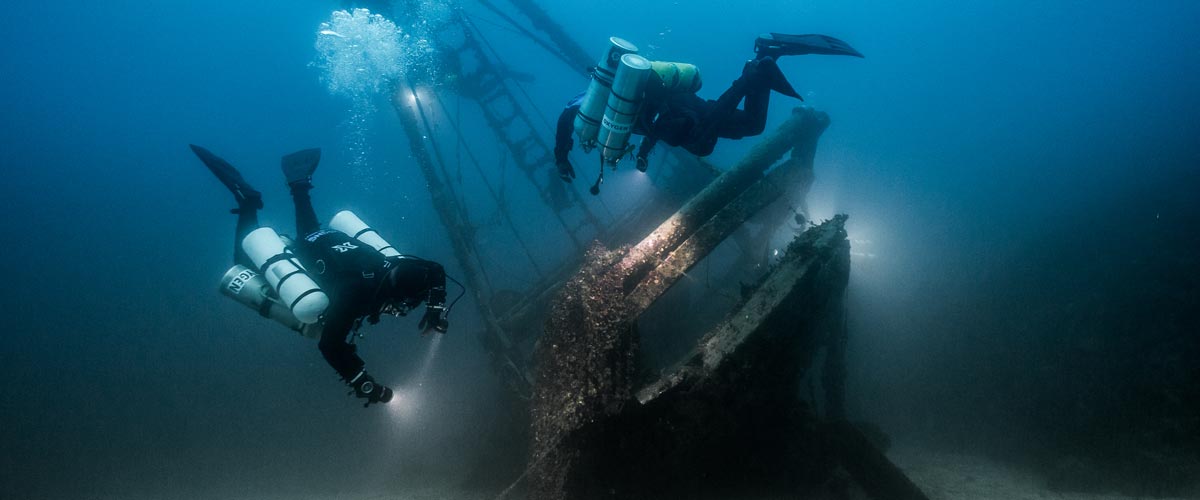
Strategies and procedures
Our strategies, those broad guiding lines tracing the path to follow, from how to approach planning to where, with what, and how we are willing to get there, will be more specific and more practical. Not because they magically become so, but because we will consciously and deliberately frame them that way.
We will establish clear, concise, and realistic procedures. Not only for the undesirable situations that may present themselves but also for those that are part of our dive objectives.
Even though, as technical divers, we often use equipment different from what we were previously accustomed to, it is essential to note that the gear does not make the diver. In a way, we could consider such equipment as the necessary tools to implement what our goal seeks to achieve, according to our strategies and procedures.
Technique plays an important role
We must put our greatest effort into learning and perfecting the different techniques we will be acquiring. Buoyancy, trim, propulsion, cylinder handling, deploying DSMBs and lift bags, valve drills, and more are essential skills we must begin to master to progress in our art. What we cannot do, when we need to do it, can harm us.
Our techniques must be effective and achieve the purpose for which they were devised. But they must also be efficient and require the least resources possible, including the time they take and the effort they demand. Effectiveness and efficiency will prevail over beauty and other considerations that may come to mind, although none of them should be mutually exclusive. A technique executed efficiently and effectively tends to have an inherent beauty.
Refining techniques is a lifelong mission. Some of them will be easy to master from the go; others, on the other hand, will be our life mission and will require many repetitions just to resemble the idea we have in mind of how they should be executed.
We must consider the environment
Our learning, the needs and musts of the practice we engage in, the experience we gradually gain, our strategies and procedures, and even our equipment and tools change with the environment.
Diving in the ocean, everything about us must be suitable for ocean dives. Conditions there rarely emulate those found in a pool, lake, or river. Variable winds and currents, greater depths, visibility conditions, other divers with uncertain skills around us, marine life, maritime traffic, distance from the coast, and many other factors add complexity and uncertainty.
It is never necessary to master the pool on the first day, but planning and aspiring to gradually cope with the ocean’s conditions is essential.
The cost of good training
We are aware that our resources are often scarce in relation to the possibilities of use we could give them if they were not. To a greater or lesser extent, we are part of the economic reality in which we are embedded.
Fortunately, the cost of good technical diver training is not an entry barrier. Comparing training and equipment costs, we see that the former are generally lower. Yes, lower cost for personalized service, essential to our future
performance and safety, than for a series of mass-produced products that are mere, albeit necessary, tools for an end.
The value of good training
The value of the training we received encompasses a range of characteristics, from emotional and methodological to technical and technological. TDI and its Introduction to Technical Diving course offer a deep and modern approach, with a teaching strategy that aims to create thinking divers, not merely obedient ones.
As technical divers, our knowledge is our primary tool. In this type of activity, what we don’t know can harm us.
Is this course optional?
Unfortunately, the fact that this Introduction to Technical Diving course is not a prerequisite for any subsequent training is an invitation to consider it optional. And we all know what usually happens to “optional” under budget constraints.
However, this course should be seen as optional only by those divers who are somehow familiar with the use of technical equipment, who have a mindset more in line with the requirements of this type of diving, who plan and execute the dives the proper “technical” way, who know their gas consumption rate, who are not intimidated by non-decompression tables, who feel comfortable using their dive computers, and know the techniques and have at least an acceptable level of buoyancy, positioning, and propulsion. Those can go straight to a more advanced training course, such as TDI’s Advanced Nitrox.
We must ask ourselves whether or not we are in that group.
Remember our goal: to have fun
Recreational diving is our passion. Jumping into the water carrying heavy equipment and having properly dotted our I’s and crossed our T’s have only one ultimate goal: fun. This is the activity we have chosen as a hobby. We must enjoy it; it must give us pleasure and make us vibrate.
Having a good time is not optional!
Blogs
Four opportunities to go pro in 2024 with Dive Friends Bonaire
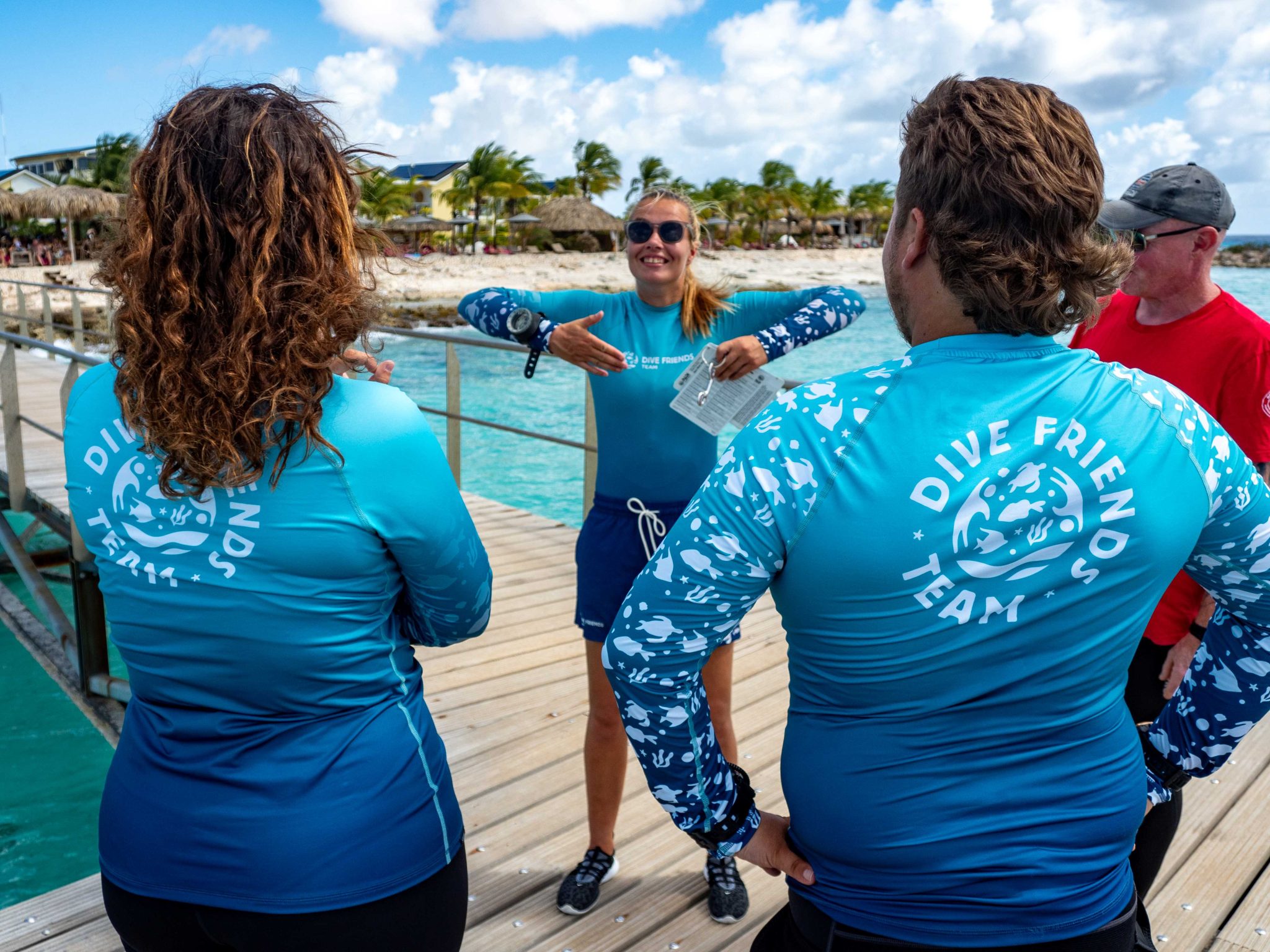
Dive Friends teaches the Instructor Development Course (IDC) several times a year to students who are eager to share their passion for diving with the world.
Dive Friends is known for the personal approach throughout the course. Their in-house course director will lead the students through every essential step, mentoring them to achieve their fullest potential as a dive instructor.
Applications for the following IDC start dates are now open:
- 12 April
- 5 July,
- 20 September
- 29 November
Partnership with Casita Palma
If the student opts for the IDC-Deluxe or IDC-Supreme package, their accommodation will be arranged for them at Casita Palma. This small and quiet resort is within walking distance from Dive Friends Bonaire’s main dive shop location and has everything you need to relax after an intense day of IDC training. Breakfast is included, so the student will always be fuelled and ready for their day.
Contact Dive Friends Bonaire’s Course Director Eddy for more information: coursedirector@divefriendsbonaire.com.
-

 News3 months ago
News3 months agoHone your underwater photography skills with Alphamarine Photography at Red Sea Diving Safari in March
-

 News3 months ago
News3 months agoCapturing Critters in Lembeh Underwater Photography Workshop 2024: Event Roundup
-

 Marine Life & Conservation Blogs2 months ago
Marine Life & Conservation Blogs2 months agoCreature Feature: Swell Sharks
-

 Blogs2 months ago
Blogs2 months agoMurex Resorts: Passport to Paradise!
-

 Blogs2 months ago
Blogs2 months agoDiver Discovering Whale Skeletons Beneath Ice Judged World’s Best Underwater Photograph
-

 Marine Life & Conservation2 months ago
Marine Life & Conservation2 months agoSave the Manatee Club launches brand new webcams at Silver Springs State Park, Florida
-

 Gear Reviews3 months ago
Gear Reviews3 months agoGear Review: Oceanic+ Dive Housing for iPhone
-

 Gear Reviews2 weeks ago
Gear Reviews2 weeks agoGEAR REVIEW – Revolutionising Diving Comfort: The Sharkskin T2 Chillproof Suit



